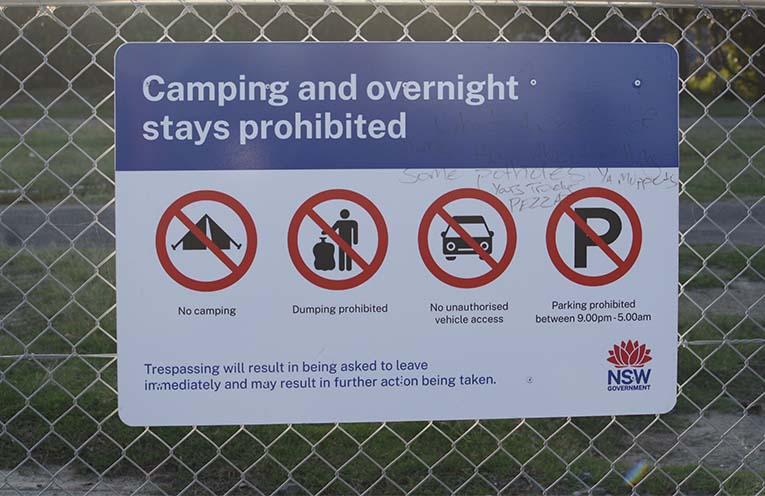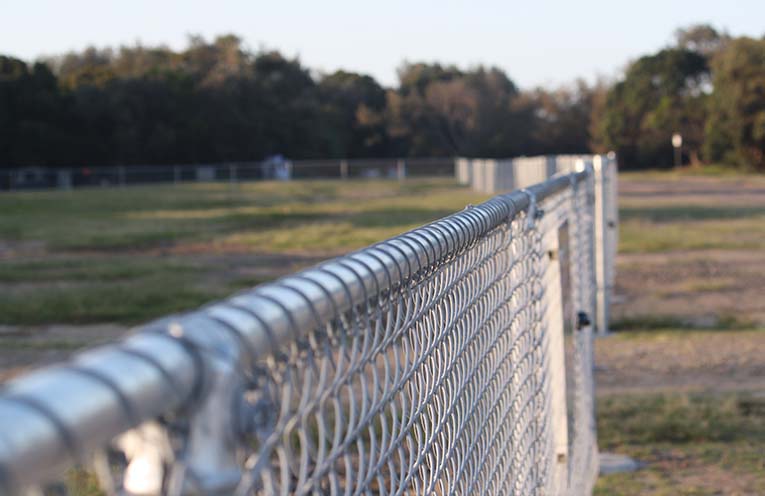
AS Coffs Harbour’s newly elected councillors settle in, community groups are raising concerns about the growing homelessness crisis and what actions Council will take to address it.
A number of people already sleeping rough need to find another spot to live following the erection of a fence in early September around an area in the Jetty precinct.
 Advertise with News of The Area today.
Advertise with News of The Area today.It’s worth it for your business.
Message us.
Phone us – (02) 4981 8882.
Email us – media@newsofthearea.com.au
Signs declare that camping, overnight stays, and parking between 9pm and 5am are prohibited, with the threat that trespassers will be asked to leave and may face further action.
For those sleeping rough, this is a sign that their living situation is tenuous and they will need to move on from the place that’s been home.
It’s a complex issue compounded by the site’s dual management and ownership.
The fenced off area is the responsibility of NSW Government Property and Development, and the remaining area is Crown land managed by the City of Coffs Harbour Council.
Rough sleepers are occupying both areas.
Both government entities have acknowledged their responsibility for enforcing “illegal camping” rules and engaging with those experiencing homelessness.
A spokesperson for Property and Development NSW said the fence was part of “security, safety and wellbeing measures to address unauthorised camping, dumping of rubbish and parking”.
Community flyers had been issued over a four-week period, warning that the signage and fencing were to be installed.
These also included contact details for support services.
Since the fence went up, a number of the rough sleepers have relocated to the Crown land area managed by Council.
It is understood that Council rangers, who are familiar with the area, have been issuing warning notices only to those they consider to be “illegal campers”.
This means they are targeting transient campers but not those who’ve been living there long term.
According to the Enforcement of the Inclosed Lands Protection Act, NSW Police have discretion to move people on.
At a higher level, both the NSW Government and City of Coffs Harbour Council have made overarching commitments to reducing homelessness.
The Council’s initiatives are enshrined in their homelessness policy and recently released Affordable Housing Strategy which mandates they will “seek commitments from NSW Government” to fund and deliver 464 additional social housing dwellings and 450 crisis accommodation places for people at risk of homelessness by 2041.
When contacted about their plans for actioning this initiative, new Mayor Nikki Williams said she had met with the NSW Minister for Homelessness Rose Jackson, in Sydney last week.
“Homelessness is an issue in communities right across the North Coast,” the Mayor said.
“It’s a complex and sensitive challenge for the support agencies who operate in this space and for the State, which has primary responsibility.
“As mayor I will strongly advocate for actions which can help address the situation.”
No doubt, this is a difficult situation for the Council to manage for many reasons, including on where to draw the line between what is an “illegal camper” versus a rough sleeper.
However, as the closest tier of government to the community, the Council is an important source of local understanding and leadership on an issue that is only getting worse.
The number of people sleeping rough in Coffs Harbour has increased from 82 in 2023 to 147.
Shelter NSW is an independent, non-profit organisation that advocates for improved housing outcomes for people on low incomes.
Principal Policy Manager Cathy Callaghan, said they were sympathetic to the challenges faced by local councils.
“Especially along the coast where major flood and fire incidents have greatly impacted supply and prices.
“This is compounded by the impacts to housing affordability in NSW across the board, where thousands of people have fled major cities looking for cheaper housing in the regions.
“Council staff and representatives are on the ground and in some ways better equipped to respond to the rough sleeping issue.
“Bellingen Council is particularly a leader in this regard.
“[It] has worked closely with a local housing advocacy group, Housing Matters, to achieve some great outcomes, including an affordable housing project for older women.”
By Leigh WATSON

